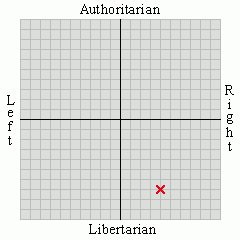No, this is about earning money for not producing electricity when there is wind and you can.
Energy firms will receive thousands of pounds a day per wind farm to turn off their turbines because the National Grid cannot use the power they are producing.Actually this isn't news as such. The solution of paying them to switch the generators off might be, but the problem has been known about for years. As I understand it the electricity produced can't be stored because there isn't a battery big enough and even if there was it's AC and there's no such thing as an AC battery. You can't simply produce way more than you need to be on the safe side because important and expensive things will go fzzzt, pop and boom. You can produce not enough but doing so won't make you very popular with the people whose lights keep going off. So the aim is to produce exactly the right amount all the time, matching supply and demand almost perfectly. As I child someone told me that they increase electricity production at half time in football games or when the adverts are on in the middle of soap operas because of all the kettles going on. Well, it seems there's something in it, though obviously there's more to it than that. For one thing there are transmission losses so it's necessary to produce enough over and above the demand to allow for the loss. For another there are ways of storing excess as potential energy, e.g. pumping water to a reservoir above a hydroelectric dam. Again, there are losses but it does mean you can produce a little more than you think you'll need and use it up to pump water or compress air to store and convert back to electricity later. Combining these things with a variety of generators - some whose output can't easily be adjusted, and some which can be turned up or down as need dictates - management of the grid must be a lot like a magician keeping a load of plates spinning on poles. If he watches them closely and pays attention he can see where he needs to increase the speed of a plate and where he can leave well alone for the moment.
Critics of wind farms have seized on the revelation as evidence of the unsuitability of turbines to meet the UK's energy needs in the future. They claim that the 'intermittent' nature of wind makes such farms unreliable providers of electricity.
And into the mix comes wind energy, a source which varies on how much wind there is where there happen to be wind farms.
The National Grid fears that on breezy summer nights, wind farms could actually cause a surge in the electricity supply which is not met by demand from businesses and households.I've seen stuff on the web claiming that it's not a problem or at least is not a significant issue, but generally such claims seemed to be coming from Big Eco, particularly the parts of it that make wind turbines or depend to some degree on those that do. Besides, such claims look rather less convincing now.
The electricity cannot be stored, so one solution – known as the 'balancing mechanism' – is to switch off or reduce the power supplied.
The system is already used to reduce supply from coal and gas-fired power stations when there is low demand. But shutting down wind farms is likely to cost the National grid – and ultimately consumers – far more. When wind turbines are turned off, owners are being deprived not only of money for the electricity they would have generated but also lucrative 'green' subsidies for that electricity.You're not kidding, but let's not forget that's only the newest part of the money pit. Because it's not competitive on it's own wind power is generously subsidised, and don't give me that shit about it being just until the technology is mature - windmills have been around for thousands of years and people started generating electricity with them a century ago. It's had a fair go, but still the subsidies in the shape of taxes and/or levies on their electricity bills.
The first successful test shut down of wind farms took place three weeks ago. Scottish Power received £13,000 for closing down two farms for a little over an hour on 30 May at about five in the morning.
Whereas coal and gas power stations often pay the National Grid £15 to £20 per megawatt hour they do not supply, Scottish Power was paid £180 per megawatt hour during the test to switch off its turbines.
It raises the prospect of hugely profitable electricity suppliers receiving large sums of money from the National Grid just for switching off wind turbines.
Dr Lee Moroney, planning director of the Renewable Energy Foundation, a think tank opposed to the widespread introduction of wind farms, said: "As more and more wind farms come on stream this will become more and more of an issue. Wind power is not controllable and does not provide a solid supply to keep the national grid manageable. Paying multinational companies large sums of money not to supply electricity seems wrong."
Earlier this year, The Sunday Telegraph revealed that electricity customers are paying more than £1 billion a year to subsidise wind farms and other forms of renewable energy.Nice work if you can get it, as this 'hippy' turned wind-millionaire can tell you (though you may want to sit down in the dark and do some deep breathing or something before clicking that link).
Still, despite the problem it's, ah, not actually a problem according to the National Grid.
A National Grid spokesman said: "The trial demonstrates that wind can help balance supply and demand just like other generation types: this is potentially useful to us on warm but windy summer days when generation outstrips the low demand – and a higher proportion of generation is made up of wind and inflexible nuclear."Look, how can you say there isn't a problem, you utter fucknuts? It might not be an insurmountable technical problem, though it's clearly going to become bigger the more of the things you build and the bigger you build them, but there's a financial problem if your business
The spokesman added: "The trial is something supporters of wind energy should welcome, as it gives evidence to their case that wind generation does not bring insurmountable problems to balancing supply and demand."
But normally when a business overproduces they have to deal with it themselves, so please permit a layman's question: why the fuck are you just sitting back and watching the money roll in when you could be creating more storage for the surplus your fucking bird mincers are producing? Christ, at the very least you could turn things backwards and use electricity to turn the blades in still air and make it look like they're doing something vaguely worthwhile. Or just put some nice lights on it maybe.
PS - Bill Sticker and I seem to have been looking at the same pages of The Tele, though I didn't look at the comments and didn't see the link to a doco about wind generation and money generation called Con With The Wind. Nice title, which I wish I'd thought of first. I'll be watching that when it comes out.



















6 comments:
Is it just me or are the 'Comments' at the Torygraph getting more difficult to access?
I rarely look to be honest.
@BS
You need to keep up, it's becoming the Labourgraph now ;\
@AE
doesn't matter if its AC, you can still charge a battery with it.. how else would you charge batteries at home then? There may be a lot of loss but the turbines are still on and paid for rather than off and paid for. Obviously what happened here is that someone in charge can't be bothered to build a new hydroelectric pump or a giant battery, and would just rather spend someone else's money to make the problem go away.
1 of 2
Anon, that's not what I said. I said there is no such thing as an AC battery. Yes, you can charge a DC battery if you also put a rectifier in the system somewhere to change the supply to DC. Possibly not as straightforward to make industrial sized ones as the dinky little jobs used to turn AC household supply into DC for batteries in our homes, but certainly not beyond technology. But we still need to make a big battery to store the excess wind energy. And I mean BIG.
This isn't beyond us either, as shown by this battery in Alaska. There's only one little problem with it: despite being the size of a fucking warehouse it'll only supply 12,000 people. Oh, and after just seven minutes it'll be flat. It's really a gigantic UPS so that when things go tits up people have a few minutes to start up their emergency gennies. I imagine there's nothing to stop the UK building enough similar giant batteries to store loads of power from renewables and help manage the grid except the heart stopping costs, the sheer numbers needed and where the hell to put them all. I wouldn't object if you flattened Lakeside Thurrock for half a dozen or so of them - I hated that fucking place. There, that's the best part of ten minutes supply for ten thousand homes sorted out. Not much, I know, but it's a start ;-)
The alternative of more potential energy type storage also has it's share of problems. Take hydro, for example. Okay, someone can't be bothered to build a pump, so sack him and replace him with someone who is. But where to put it? You need a water source and a suitable uninhabited area for damming, a suitable dam site, nothing downstream if it fails, nothing unique about the land that would stop you from permanently drowning it (and you can be sure that no matter how unremarkable it might be someone will find something to protest about). The sad fact is in Britain there aren't going to be many places you can do it. Similarly compressed air needs a suitable home, which I think is down old mines usually. Again, there's a limited number of suitable places, just as with the hydro systems and megabattery cities. That it hasn't been done suggests that there's a good reason why not.
2 of 2
The simpler solution would be to ditch some or all of the intermittent and unpredictable power generation that's causing the problem in favour of more predictable and controllable ones. If it must be renewable I'd suggest tidal and geothermal look far more promising than yet more bird mincers. A wind/battery set up has it's uses where you need a little bit of power and you're far from the grid, but probably not as a large portion of your generating capacity. The Danes were in love with the bloody things and even they gave up at 20% or so, and they had advantages in grid management that Britain lacks because they could sell excess power to Germany or Norway and buy from them when they were short. I believe Britain has a small capacity to do the same with France but nowhere near as much as Denmark and her neighbours.
Probably the solution is a bit of everything rather than one thing only. The turbines probably aren't going to come down because there's too much money and face invested in them as a solution, bullshit though that may turn out to be, but investment and development of reliable renewables should be a higher priority than more wind. A billion tons of water moving in and out of a bay twice a day should generate a joule or two, and while there's still four slack tides a day as well you can work out when they'll be years ahead of time and plan for it.
Last week I was on holiday in Scotland and visited the Cruachan hydro electric plant up near Oban.
This clever piece of kit was built in the 1960's and stores a lake dammed at the top of a mountain to power four turbines on demand and when required can produce enough energy to run a city the size of Coventry for almost a day.
The clever part is that when the Nat Grid is producing excess electricity they use it (at cheap rates) to refill the James-Bond like lake at the top by pumping water back it. It's used to deal with peak demand on the grid and can go from zero to full power in 2 minutes.
So my question is - why the fuck are we pissing about with useless windmills when what we actually need is more controllable, green and dependable resources like Cruachan?
Wind power seems a nice idea but unless ITV start scheduling Corrie to only run on days when the wind is blowing it's a fucking stupid idea.
Post a Comment